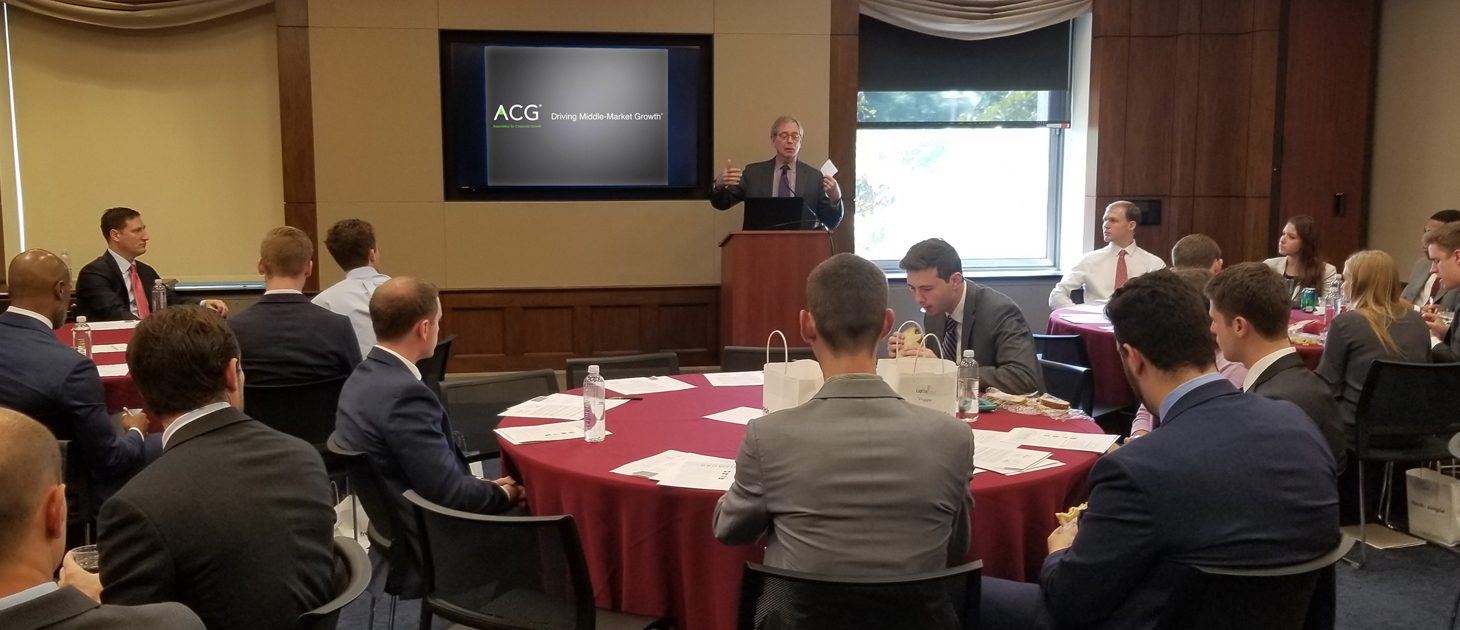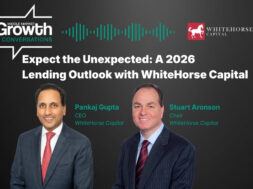Middle-Market Public Policy Roundup
This week's roundup recaps a briefing held in D.C. that explored middle-market capital formation. It also looks at a new proposed rule related to the distribution of research reports.

In this week’s roundup, we recap a briefing that the Congressional Caucus for Middle Market Growth hosted in Washington, D.C., focused on middle-market capital formation. Plus, we look at the SEC’s new proposed rule related to research reports under the FAIR Act.
ACG Coordinates Middle Market Caucus Briefing
On June 7, ACG partnered with the National Center for the Middle Market on a briefing in Washington, D.C., focused on middle-market capital formation. The briefing was hosted by the Congressional Caucus for Middle Market Growth, a bipartisan group of congressional representatives focused on drawing attention to the outsized economic impact of midsize companies and their investors and raising awareness about challenges facing the industry.
Bipartisan congressional staffers attended the briefing to learn about the challenges of raising capital in today’s regulatory environment and the funding options available to middle-market companies.
ACG President and CEO Pat Morris opened the briefing with a reminder that the 200,000 companies that make up the middle market account for one-third of U.S. private sector GDP. He emphasized that protecting the middle market impacts the economic prosperity and job growth in the districts of every member of Congress.
Kendra Decker, a partner in the National Professional Standards Group of Grant Thornton LLP, outlined the options available to firms for raising capital. According to Decker, regulatory reporting hurdles and high compliance costs make IPOs an unfavorable choice. As a result, middle-market companies frequently rely on exemptions for securities offerings below a certain threshold, as well as alternate means of generating capital, such as crowdfunding and debt financing.
For firms on the lower end of the middle market, increased costs of regulatory compliance lead to high relative risk that puts these firms at a disadvantage when obtaining loans.
Jeff Lieberman, director of financial sponsors investment banking for SunTrust, explained the challenges facing banks that lend to the middle market. Currently, corporate finance has a risk-adjusted focus that correlates with the size of the company. For firms on the lower end of the middle market, increased costs of regulatory compliance lead to high relative risk that puts these firms at a disadvantage when obtaining loans.
Thomas Stewart, executive director for the National Center for the Middle Market, praised the middle market as “the point of the spear of American prosperity.” He characterized middle-market entities as companies that require access to capital but whose “appetite” for capital varies over time. While banks are the primary capital source for middle-market firms and government financing is often ignored, the increased use of nonbank lending poses questions of safety for investors and investees. Meanwhile, complex regulations and investment banking fees of 7 percent on loans (the so-called “IPO tax”) restrict an avenue of growth capital by making it difficult for midsize businesses to go public, according to Stewart.
SEC Proposes Rule Surrounding Research Reports under FAIR Act
The Securities and Exchange Commission has proposed new rules related to the 2017 Fair Access to Investment Research Act, known as the FAIR Act. The new rules are designed to facilitate the distribution of research reports by broker dealers on covered investment funds, which include mutual funds, exchange-traded funds, registered closed-end funds and business development companies.
If enacted, the new rules would allow broker-dealers to distribute research reports on investment funds without it being considered an offer to sell the investment fund’s securities. The change is intended to improve the understanding of such funds and encourage investment.
The proposed rules would also clarify that filing requirements under the Investment Company Act do not apply to research reports on covered investment funds, subject to certain conditions.
Neither proposal would apply to private funds.
The FAIR Act instructed the SEC to amend its rules to ease restrictions and burdens faced by broker-dealers in regards to the distribution of research reports on covered investment funds.
The proposal has a 30-day comment period following publication in the Federal Register, which is expected soon.
Check back each Friday for the weekly Public Policy Roundup. Is there a policy issue you’d like us to cover? Send your suggestions to MMG Editor Kathryn Mulligan at kmulligan@acg.org.

Maria Wolvin is ACG Global’s vice president and senior counsel, public policy.

Ben Marsico is ACG Global’s manager of legislative and regulatory affairs.


